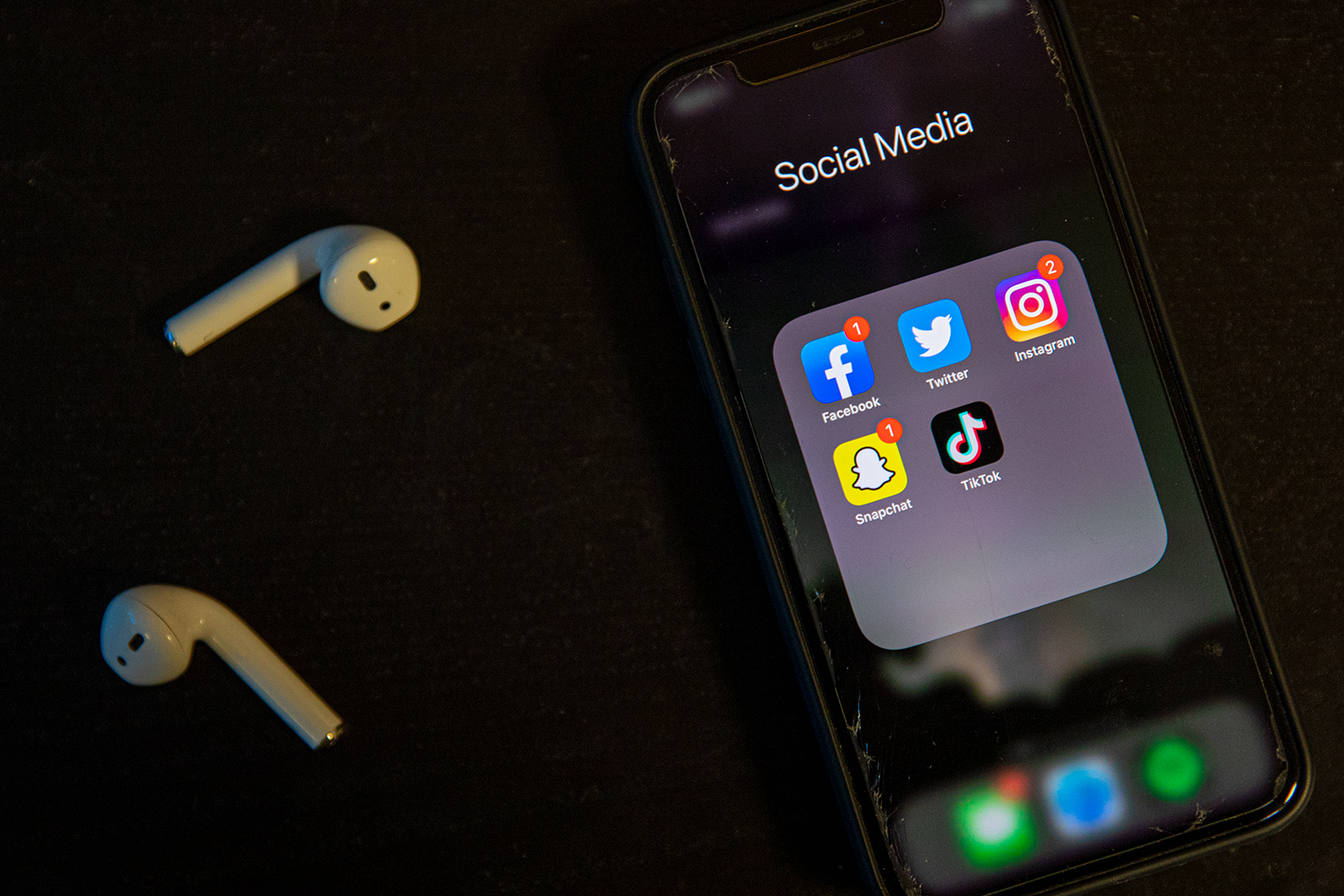Whether admissions officers like applicants’ social media or not shouldn’t matter

Considering applicants’ social media accounts in admissions decisions could prove to be a waste of time and valuable resources for admissions officers. (Daily Bruin file photo)
By Mark McGreal
March 1, 2020 10:37 p.m.
The internet is forever, but students’ futures shouldn’t be dictated by their pasts.
In January, Kaplan Test Prep reported 36% of college admissions officers view applicants’ social media profiles, an 11% bump from last year.
As if it wasn’t hard enough for applicants to get into college before universities added cyberstalking to the admissions process.
UCLA is the most-applied-to university in the country, with more than 135,000 applicants in 2019. But in fall 2019, UCLA had an admission rate of approximately 14%. And last year, the university planned to cap enrollment rates in order to fix overcrowding.
And UCLA Undergraduate Admission doesn’t look at social media, so many qualified students are already being turned away without the use of social media in admission.
Using social media accounts to assess a borderline student’s compatibility with a university is not only time-consuming, entirely subjective and not indicative of potential collegiate success, but also reflects an affinity for “cancel culture” that an influential university like UCLA should not support.
When evaluating a student’s application, colleges need to determine if a student and a university are a good fit for one another.
Gary Clark, director of UCLA Undergraduate Admission, said in an emailed statement that gauging a student’s potential success on campus is paramount to the admissions process.
“Our goal is to determine if we feel the student is a good fit for UCLA, meaning is the student able to both benefit from and contribute to UCLA in and outside of the classroom,” Clark said in the statement.
The university does not look at social media profiles to assess students’ applications and instead strictly adheres to the 14 criteria stipulated by the University of California, according to an emailed statement from UCLA Undergraduate Admission.
And while this method of admissions hasn’t been adopted yet, an increasingly digital world makes it difficult to know what policy the university will implement in the future.
It’s hard to determine a student’s ability to succeed from their social media profiles, as these profiles are often used to push a public persona rather than to reflect real life. A 2019 poll conducted by YouGov found that 41% of social media users in Britain claimed to have seen inaccurate content during a 30-day period.
As such, reviewing profiles would quickly become a waste of time for admissions departments.
“People use social media to reflect the recreation they engage in,” said Jason Mally, a fifth-year cognitive science and computer science student. “Besides LinkedIn, social media sites are not professional resumes.”
The content presented on each platform is different – not every post on Twitter is reflective of someone’s professional persona, nor is it indicative of their potential success as a student.
Inappropriate or even downright offensive posts are most likely what admissions officers are looking for.
But it’s hard to tell what admissions officers would consider when assessing social media accounts, and arbitrary decisions could set dangerous precedents. One positive social media post could propel an applicant over the edge, while one negative post could irreparably change their future.
Applying for college is a stressful time, and any fair advantage a student can get in the process, they will take.
“I had friends in high school who thought universities might check their social media, so they went through and deleted whatever they thought put their chances at risk,” Mally said.
While this may just be pictures of partying or skipping class, it could also include purging social media of any controversial subject matter, like posts about political or other personal beliefs. Admissions directors are still people who have biases, so there’s no reason to risk potentially offending them.
But these biases can play right into the cancel culture narrative – the act of boycotting an individual because of comments they’ve made or actions they’ve taken.
Some students have left school or been officially dismissed for posting racist content while in college. And unlike high schoolers posting about skipping sixth period, these students are older and their punishments are warranted.
High schoolers are still learning and should be afforded opportunities to make and learn from their mistakes, and their future educational opportunities shouldn’t be hindered by immature choices.
And there’s no one more immature than a high-schooler on Instagram.
“You’re young when you’re 14 or 15,” said Shivani Ghate, a third-year cognitive science and economics student. “It doesn’t make (bad behavior) okay, but people grow, change and evolve. It’s hard to draw that line.”
College applicants haven’t fully matured yet, and their social media reflect that. The rational part of a person’s brain isn’t fully developed until 25, so it doesn’t seem fair to judge these individuals based on comments made online.
Of course, these applicants did choose to put personal content online, so some people argue that it’s public information. Anyone can access it, so it seems fair for college admissions officers to use it. In fact, they may be doing themselves a disservice if they don’t take all aspects of a candidate into account.
But admissions officers aren’t moral authorities who know exactly what’s acceptable for a person to post. The criteria are too subjective, and no standard besides a very general blanket ban on hateful rhetoric could feasibly be enacted.
The internet allows access to social media users’ personal lives, and users need to be conscious of what they post in a more connected world.
But mistakes shouldn’t follow a person around forever, even though the internet is here to stay.


